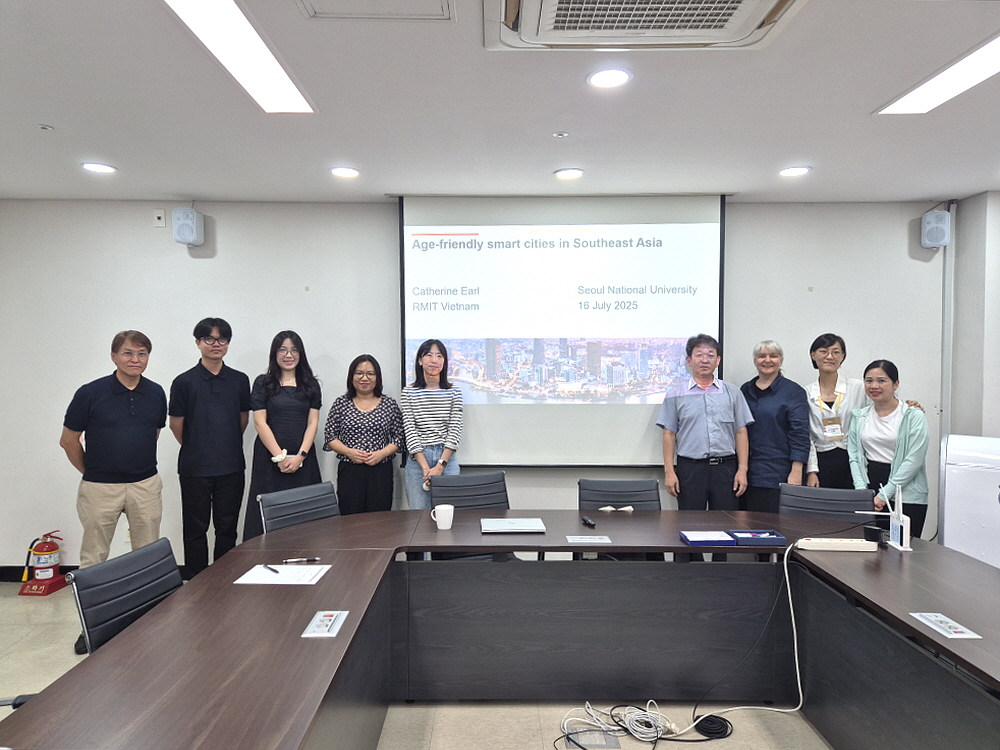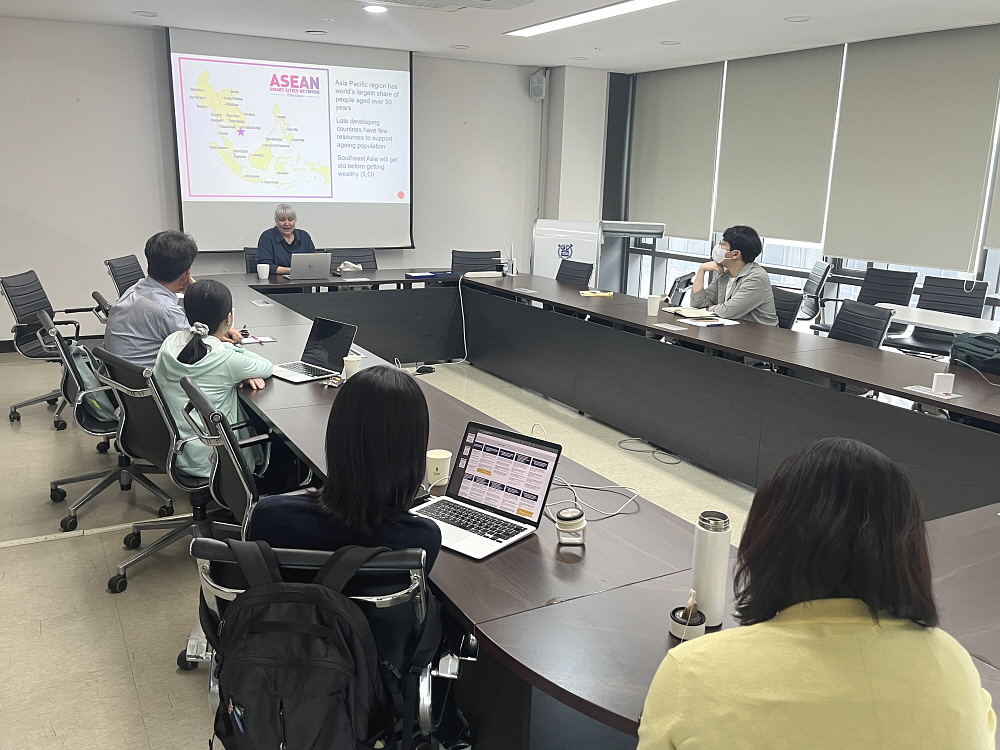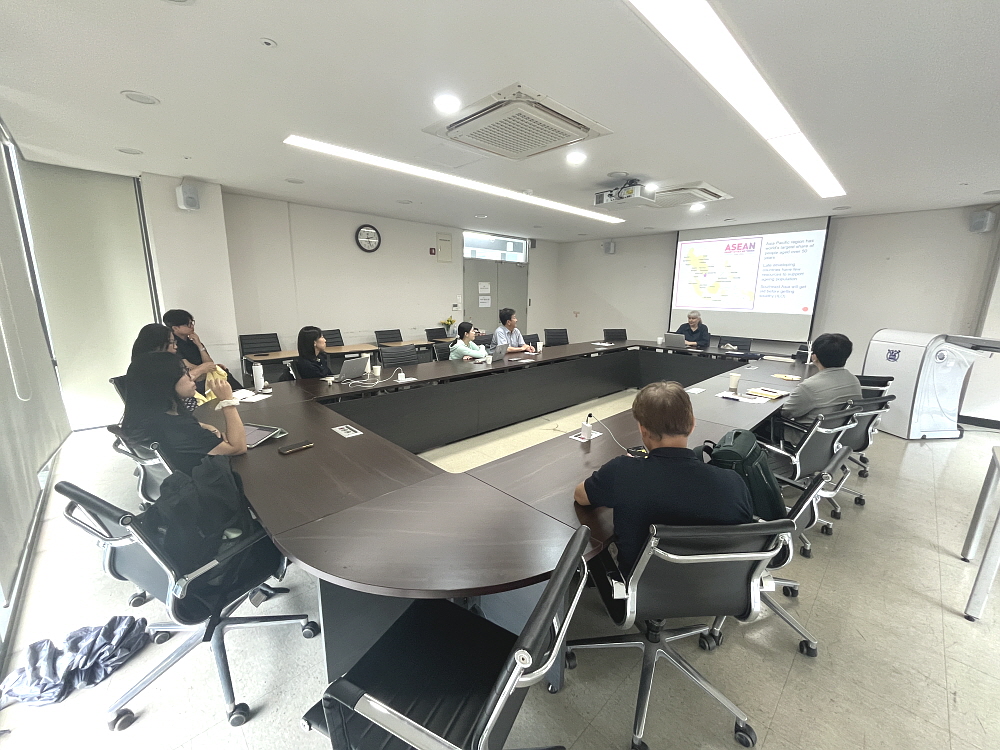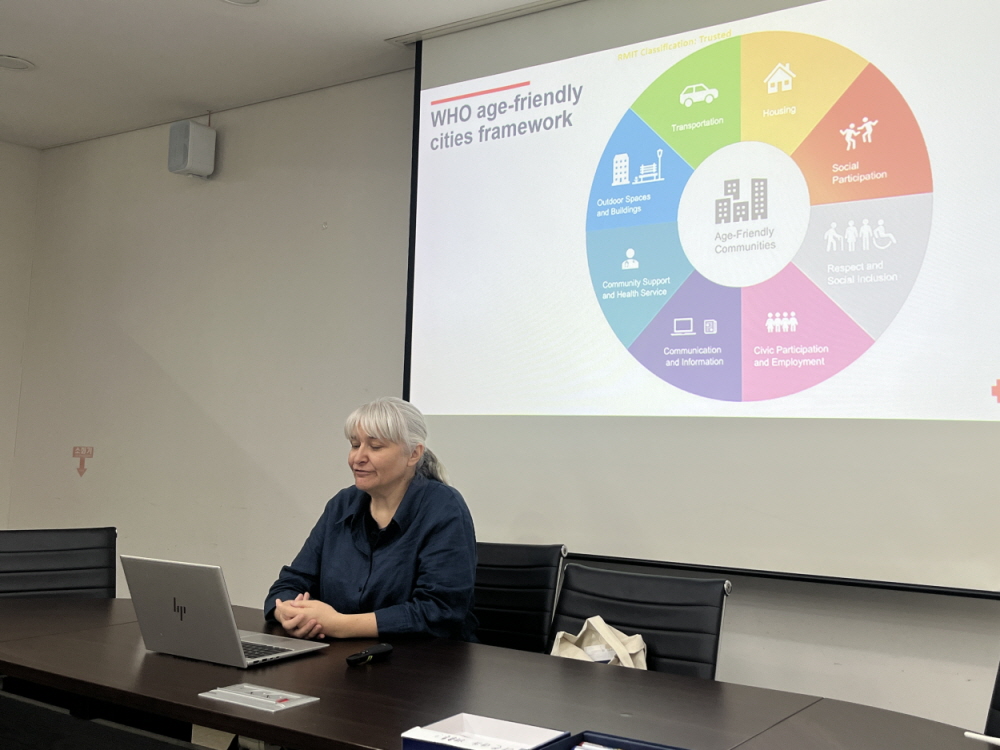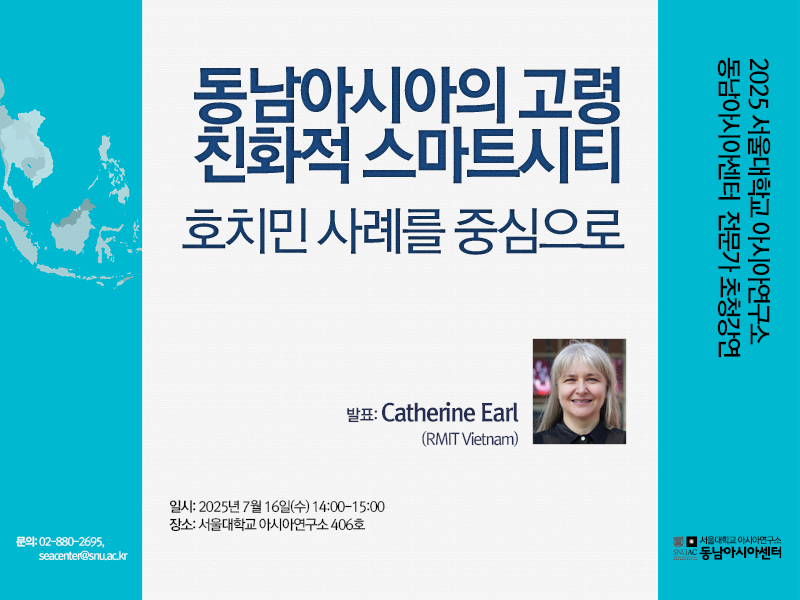
Abstrac:
This presentation explores the intersection of age-friendly cities, that aim to make urban life more inclusive, equitable, and accessible, with smart cities, that improve efficiency and sustainability in urban services and the quality of urban life. The global population is shifting from being young to being increasingly older and the late developing countries of Southeast Asia will get old before they become wealthy. A range of social issues of ageing and inequality across Southeast Asian countries are explored utilising secondary data across several indicators. The nations of Southeast Asia are highly diverse on a range of dimensions of ageing and significant inequalities are apparent both within and between them. The presentation provides a brief socioeconomic overview of Southeast Asia and its changing demography before discussing its ageing society and challenges for good health and wellbeing, stable income, civic participation, and digital engagement. It is concluded that the ageing of the ASEAN nations represents a major challenge in the decades ahead and that each member, from the wealthy to the relatively poor, will be deeply affected, although in different ways. The theoretical contribution applies relational autonomy and chronobiopolitics to explain a refusal of the socially constructed normative scripts of the life course that restrict agency in later life. The practical contribution makes recommendations for policymakers at national and regional levels and for universities to develop a progressive policy and research agenda involving partnered projects, participatory methods, and co-designed solutions for age-friendly smart cities in Southeast Asia and the case of Ho Chi Minh City.
Author
Catherine Earl, PhD, is associate professor in the School of Communication and Design, RMIT Vietnam. Catherine is a social anthropologist, policy analyst and community educator. She is a highly experienced qualitative researcher and she has conducted ethnographic fieldwork and sensory studies in and around Ho Chi Minh City since 2000. Her research focuses on the rise of Vietnam’s middle classes, mobilities, urbanization and public space, changing nature of work and welfare, ageing, gender equity and inclusion in contemporary Vietnam and Australia. She leads action research projects on sustainability and social transformation in Ho Chi Minh City and fostering creativity and higher education in the ASEAN region. Recent publications include Vietnam’s Creativity Agenda (Springer, 2025) and Research Handbook on Inequalities in Later Life (Edward Elgar, 2024).
https://academics.rmit.edu.au/catherine-earl
https://orcid.org/0000-0002-7979-5453
발표: Catherine Earl(RMIT Vietnam)
Photos
Review
동남아시아의 고령 친화적 스마트 시티 조성을 주제로 한 이번 강연은 지속 가능한 발전 목표(SDGs)에 기초한 아세안 국가의 스마트 시티 사업의 현황과 과제에 대한 폭넓은 고찰을 제공했다. 동남아시아 국가들은 경제 성장에 노력을 기울이는 동시에 고령화와 불평등 문제를 마주하고 있다. 이러한 문제가 향수 수십 년 동안 각 국가에 큰 영향을 끼칠 것이라는 전망 아래 아세안 국가들은 삶의 질, 경제 성장, 환경, 이지털 인프라, 사회적 평등, 보건 및 복지, 시민 참여 등을 주요 과제로 하는 스마트 시티 구축에 힘쓰고 있다. 강연에서는 관계적 자율성(relational autonomy)과 규범적 생애경로, 즉 시간규범성(chrononormativity)의 젠더적 성격에 대한 이론적 밑바탕을 통해 스마트 시티 사업의 현황과 과제를 탐색했다.
이에 기초하여 경제성장, 노동환경 및 소득, 인구학적 추이, 보건 및 복지, 디지털 포용성과 관련된 지표와 2차 데이터를 활용하여 아세안 국가별 현황과 상이한 불평등 양상을 살폈다. 이어 베트남 호치민시의 사례를 중심으로 스마트 시티 전환 과정에 존재하는 주요 문제상황을 진단하고, 향후 과제와 정책 방향을 제안하였다.
강연 후 동남아시아 각국의 도시환경 및 정책에 대한 활발한 질의응답이 이루어짐으로써 동남아시아의 고령 친화적 스마트 시티에 대한 다양한 정책 및 연구 의제가 논의되었다.
